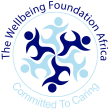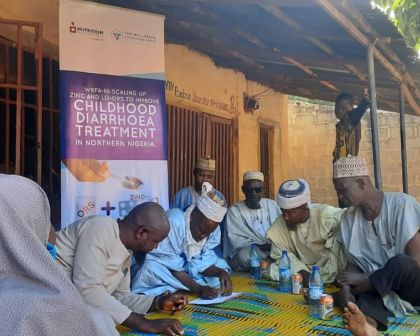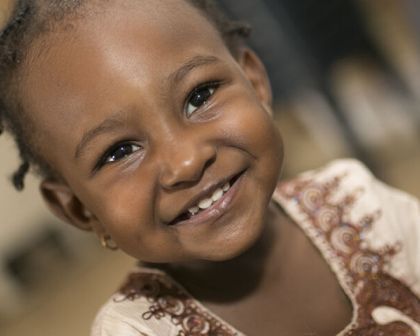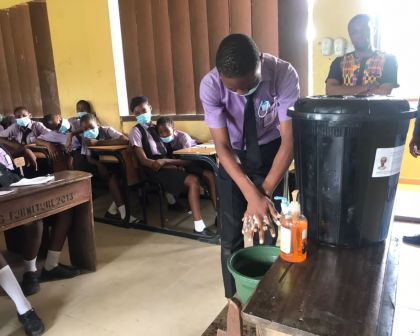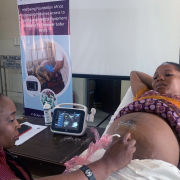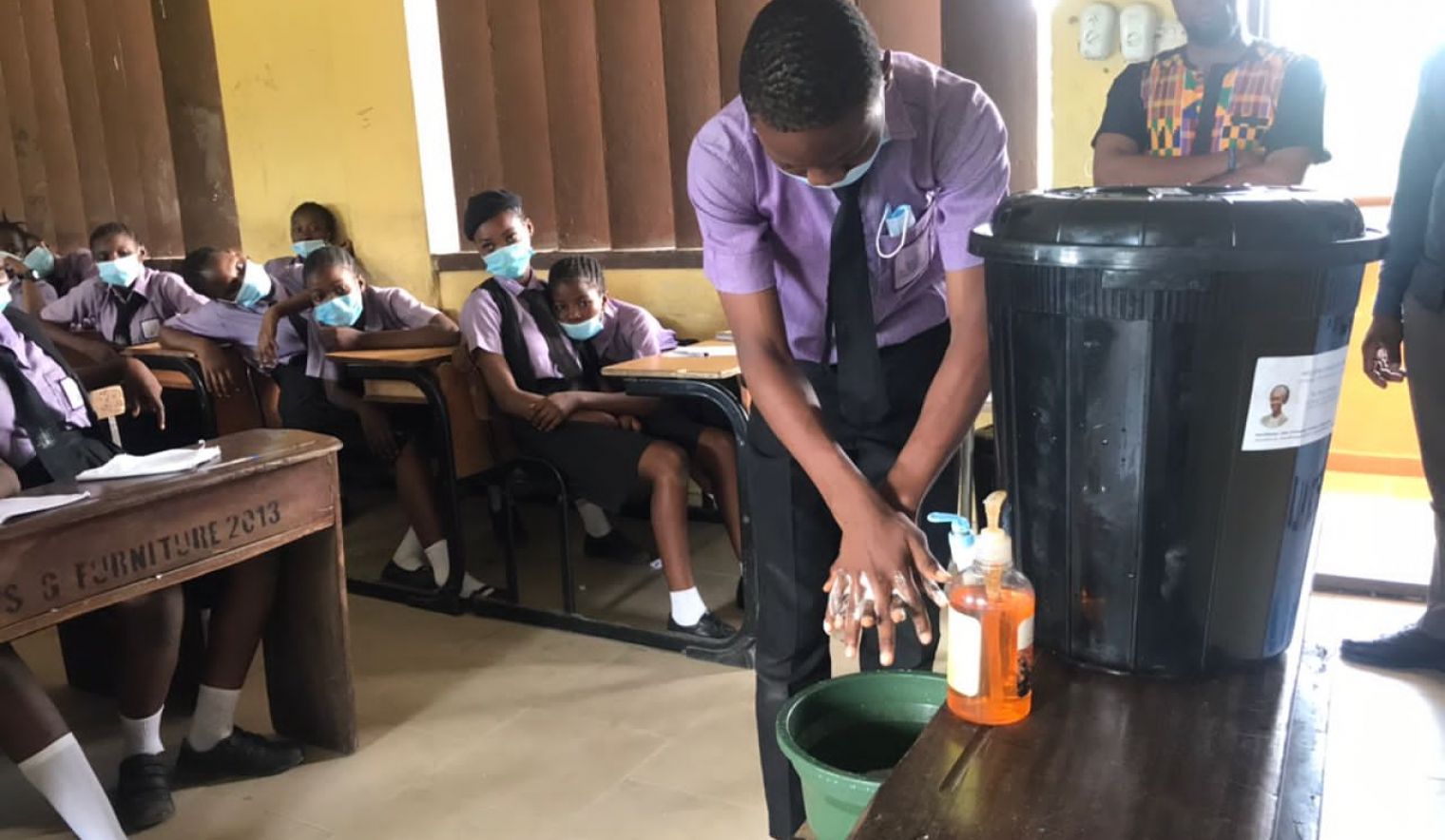
GLOBAL HANDWASHING DAY: WELLBEING FOUNDATION AFRICA LAUNCHES WASH CLUBS IN SCHOOLS AND ENGAGES COMMUNITIES ON HYGIENE AND SANITATION
To commemorate this year’s Global Handwashing Day, the Wellbeing Foundation Africa will be launching its WASH-PSHE Clubs in schools across Lagos, Kwara, Osun, FCT in Nigeria, and Accra in Ghana. In Lagos State, our WASH-PSHE Team will be visiting Akande Dahunsi Senior School, Ikoyi, Lagos to train the students on the World Health Organization standard for handwashing, and also establish the WASH-PSHE Club. This is in line with the foundation’s mandate to train 1 million children on proper hygiene and sanitation, a mandate which began in 2018 and was strategic to the global fight against Infection Prevention and Control (IPC), especially the recent COVID19 global pandemic.
The Wellbeing Foundation Africa will also be carrying out demonstrations, which will be given by MamaCare midwives at healthcare facilities across all our states of operation, focused on the importance of handwashing to prevent the spread of germs and diseases, the key moments to wash hands and the proper technique to ensure effective handwashing. The Wellbeing Foundation Africa’s strategic partnership with Unilever Lifebuoy and Sightsavers has enabled the foundation to train over 12 thousand students across various schools in Nigeria and Ghana, and also engage thousands of mothers and community members at our partnering healthcare facilities.
In her comments, Her Excellency Mrs Toyin Ojora Saraki, Wellbeing Foundation Africa’s Founder-President, stated: “I am delighted to announce that the Wellbeing Foundation Africa will be launching its WASH-PSHE Clubs across schools in Nigeria, as we commemorate this year’s Global Handwashing Day. The foundation’s Water, Sanitation and Hygiene program set a community standard in line with the World Health Organization mandate to promote Infection Prevention and Control (IPC) in healthcare facilities and communities. The evidence for handwashing is well-known – it can dramatically reduce the risk of diarrhoea and pneumonia – and has within the last 18 months played an active role in thwarting the spread of the COVID19 virus.
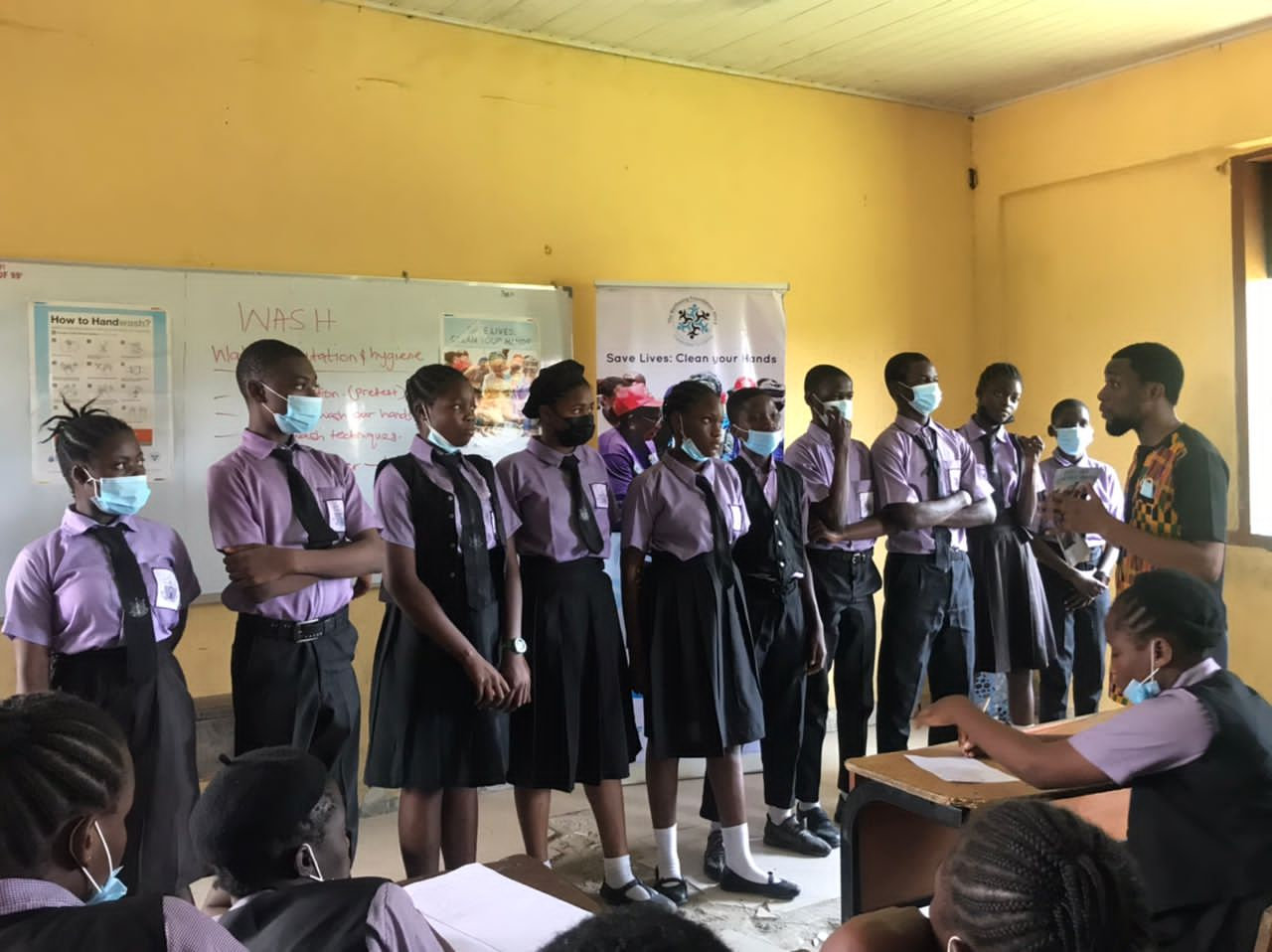
The Wellbeing Foundation Africa has partnered with key stakeholders such as the World Health Organization, World Bank, WaterAid Nigeria, the United Nations Water, Unilever Lifebuoy, and Sightsavers to promote advocacy and implement programs on water, sanitation and hygiene. We are glad to be the foremost indigenous organization leading the fight against poor hygiene and sanitation, especially in healthcare facilities and local communities, and we are committed to continuing our work with stakeholders to achieve the 2030 mandate of water, sanitation and hygiene for all.”
In his comments, Mr Joseph Chima Matthew, the Wellbeing Foundation Africa’s Advocacy and Communications Manager, stated: “The Wellbeing Foundation Africa’s WASH-PSHE Program in schools and healthcare facilities is leading the fight against life threatening diseases such as Sepsis, Pneumonia, Lassa fever, and the recent COVID19 pandemic. More than 215,000 children under the age of five die in Nigeria every year from preventable infectious diseases like diarrhoea and pneumonia. Only 29% of Nigerians have access to improved sanitation, and poor children are about four times more likely to get diarrhoea disease than rich children due to poor access to water, sanitation and hygiene. Through our frontline health workers and staff, we are committed to reaching every mother and every child, in communities across the country to ensure proper sanitation and hygiene.”
According to the recent WHO and UNICEF report on the State of the World’s Hand Hygiene, it is estimated that three out of ten people, 2.3 billion globally, lack a facility with water and soap available to wash their hands at home, including 670 million who have no handwashing facility at all. Facilities are also missing in many health care facilities, schools and public places. Over the past five years, half a billion people have gained access to basic hand hygiene facilities – a rate of 300,000 per day. This is progress, but it is far too slow. COVID-19 created a unique moment for hand hygiene, with unprecedented attention, resources, and political will.
Share this Article
